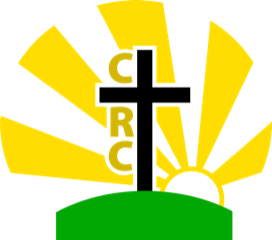Bottom line: our take on church government is "a plurality of elders by precept, one who leads by principle and pattern."
A Plurality of Elders (Acts 14:23, 20:28; 1 Tim 1:5, 5:17)
- We believe every church should be primarily lead by a plurality of elders.
- Each New Testament church had more than one elder.
- At CRCC, few major decisions can be made without the agreement of the Eldership.
- For practical purposes, we have elders who teach (we call them pastors) and elders who focus more on strategic issues (we call them governmental elders). Both groups though are principally elders.
- We believe every group of elders and the church they lead should be practically and legally autonomous but relationally submitted to an outside authority.
- We also affirm the office of deacon.
One Who Leads (James: Acts 12:17, 15:13-22, 21:18; 1 Cor 15:7; Timothy over elders: 1 Tim 5:17-22: Titus over elders: Titus 1:5)
- By biblical principle and pattern, we also have a “senior elder or pastor” within our plurality.
- We see the principle of “inside headship” in the New Testament where someone is the leader. Timothy and Titus and well as James’ role within the Apostles are illustrative here.
- All groups of elders in the New Testament were also submitted to an outside authority. In other words, they “answered” to someone…in their case, the Apostles and men like Timothy and Titus who were sent by an Apostle. We believe this is a biblical principle, and a very useful one at that, and so did the next generation after the apostles (Ignatius/Polycarp/Irenaeus) and all churches for the first 1500 years of church history.
- Most churches who deny these principles nevertheless have a more prominent elder who does most of the preaching, writes the books, and is the “face and voice” of that particular church. And many of these churches have “denominational or fellowship presidents” or “regional directors/supervisors/superintendents.”
- Again, we see this “headship among ontological equals” issue as a biblical principle, also illustrated within the Trinity of God Himself, within marriage, and in the Old Testament. We believe it is wise to have one who sets a general direction and functions as the head of the organization and that it's also wise to have outside accountability.
- With respect to the senior elder/pastor, this man’s authority must be limited in scope that there might be a true New Testament plurality. Therefore at CRCC, as the senior elder/pastor, I set the doctrinal and ministry direction with the backing and accountability of the eldership. I cannot determine my own compensation and cannot autonomously spend large amounts of church resources or initiate capital campaigns.
The Sufficiency of Scripture (2 Tim 3:16-17)
- CRCC is very much committed to this doctrine. We believe the Holy Spirit breathes life into His church by empowering us for service and through the Word of God!
- We recognize our polity differs slightly from other brothers and sisters who vigorously hold to the same doctrine.
- However, it is our fervent prayer that at a minimum, it can be seen that we are trying our best to follow the precepts, principles, and patterns of Scripture concerning church government with elders leading the church, and within that presbytery, a directing (but submitted) leader.
- We believe the same values bless fellowships of churches with each church retaining their autonomy, but because of the apostolic pattern, experiencing the blessings and counsel of being relationally and voluntarily submitted to an outside team of elders/overseers/bishops.

